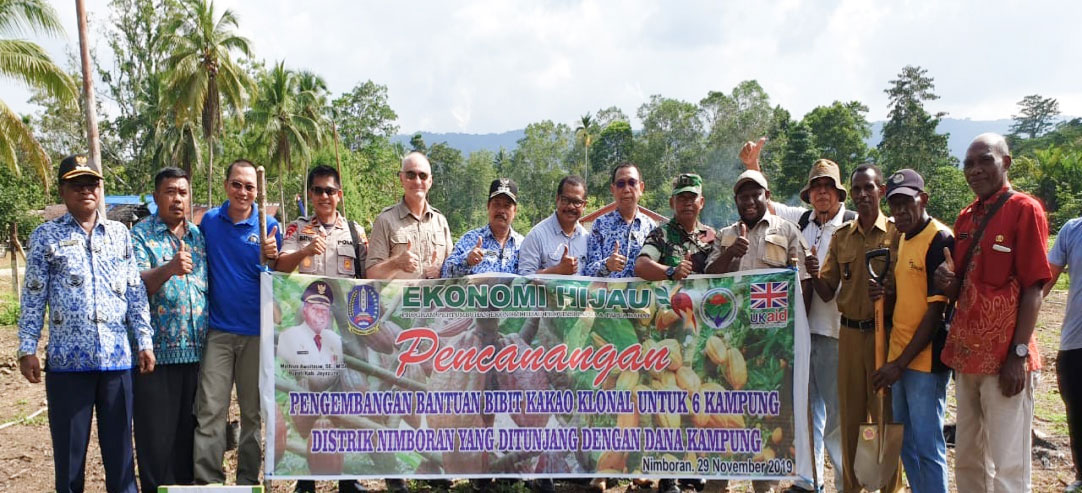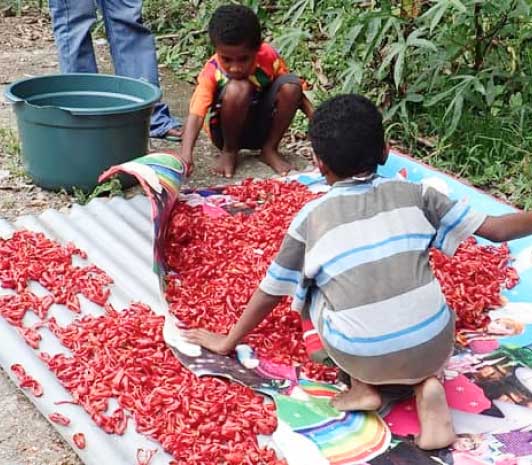STC works with the United Kingdom Climate Change Unit (UKCCU) to support Green Economic Growth in Papua and West Papua, Indonesia
Papua and West Papua provinces are Indonesia’s least developed but most resource rich regions. In order to improve local Papuan livelihoods and landscapes, STC has been working closely with visionary “green” entrepreneurs, aspiring progressive business owners and farmers in Papua Indonesia to incubate nascent businesses and prepare producers and value chain industries for better practices and market positions. This project is called Green Economic Growth for Papuan Provinces (GEGPP).
This project has four development goals:
- Green Economy: Collaborate with farmers on creating ecologically friendly and high yielding cultivation techniques to increase the quality of their product.
- Alleviating Poverty: Through supporting local economic development, we can create sustainable business opportunities in one of Indonesia’s most challenged and underdeveloped regions.
- Empowering Women Entrepreneurs: In the Nutmeg farming communities all family members of farmers are involved in cultivation, most of the nutmeg processing being female driven.
- Promoting Cultural Diversity: Our vision is to market nutmeg as a cultural bio-trade product, preserving traditional farming practices and installing ethnic harmony
STC’s services include providing technical training, system frameworks, promotion of products at International conferences, and mentoring to green entrepreneurs to improve their overall business skills and the production, processing and marketing of their products.STC is focusing its efforts on many promising green enterprises: holistic cocoa production, locally controlled community forestry, wild harvested nutmeg butter, and sago production for value added products. STC’s services include providing technical training, ideas, system frameworks, and mentoring to green entrepreneurs to improve their overall business skills and the production, processing and marketing of their products.
The project is funded by the Climate Change Unit of the UK’s Department of Internal Finance and International Development (DFID) and Ekonomi Hijau Indonesia.


